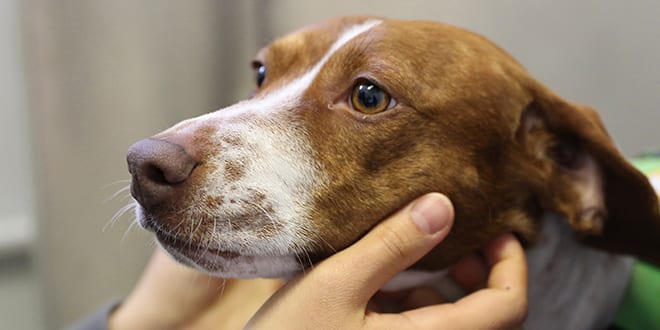What to Know About Canine Influenza
This past week, the first case of canine influenza of the year in Massachusetts was confirmed, and the Animal Rescue League of Boston (ARL) wants to remind dog owners that canine influenza is highly contagious and precautions should be taken.
What is Canine Influeza?
Canine influenza is a respiratory infection – highly contagious – and spread by nose to nose contact or coughing.
There are two strains, H3N8 and H3N2, the latter of which was responsible for a 2015 outbreak that was believed to have resulted from the direct transfer of an avian influenza virus. According to the American Veterinary Medical Association (AVMA), since 2015 thousands of dogs in the U.S. have tested positive for the H3N2 strain of canine influenza.
What to Look For and Who’s At-Risk
Clinical signs of canine influenza are similar to human flu and consist of:
- Coughing
- Fever
- Lethargy
Dogs can have the virus up to two weeks before displaying symptoms, and puppies and older dogs are most susceptible to developing more severe disease like pneumonia.
According to the AVMA, there is no evidence of transmission of canine influenza from dogs to humans or to horses, ferrets, or other animal species. It should be noted however, that in 2016 cats at an Indiana animal shelter were infected with canine influenza from dogs and cat to cat transmission is possible.
Lifestyle
Do you go to dog parks, use a dog-walking service or belong to dog social circles? If so, one preventative measure to consider is vaccination.
“Dogs that have contact with other dogs on walks, in daycare, or go to dog parks are at an increased risk and should definitely be vaccinated with the bivalent vaccine,” said Boston Veterinary Care (BVC) Lead Veterinarian Dr. Nicole Breda.
The vaccine won’t prevent every infection, but can reduce the clinical symptoms. Vaccinations are available at BVC or your regular veterinarian’s office.
See Signs, Take Action
Vigilance is responsible pet ownership. Canine influenza is rarely fatal, however should you notice any symptoms, contact your regular veterinarian immediately. With treatment, most dogs recover in 2-3 weeks.

